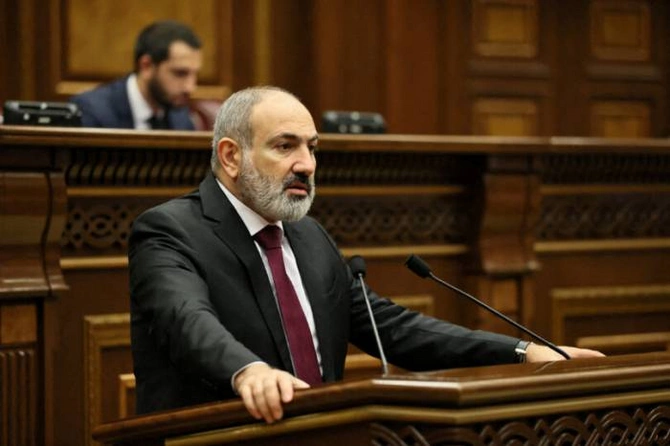
Google images
Recently, the Prime Minister of the Republic of Armenia, Nikol Pashinyan, declared that rejecting Soviet-era borders is equivalent to rejecting statehood. He elaborated:
"Armenia's rejection of the borders that existed during the Soviet era means rejection of sovereignty and statehood," Pashinyan wrote on his Facebook page.
"I must say frankly that such an approach is very dangerous for Armenia because rejecting Soviet-era maps may equate to rejecting statehood and independence. Our independence was gained within the borders of Soviet Armenia, and the international community recognized us as such. Loyalty to our internationally recognized territory is essential for our security and serves as a protective buffer," he stated.
The Prime Minister further emphasized that if the citizens of Armenia themselves fail to recognize their internationally recognized borders, it gives others the pretext to do the same.

To address the implications of this statement, News.Az reached out to diplomat and political analyst Professor Fikret Sadikhov of Western Caspian University for his insights.
"Pashinyan"s comments implicitly acknowledge that before the establishment of Soviet rule in Azerbaijan and Armenia, Azerbaijan"s territory was significantly larger, exceeding 100,000 square kilometers. Today, it stands at 86.6 thousand square kilometers. His concerns seem to stem from the historical fact that much of what is now Armenia was once Azerbaijani territory," Professor Sadikhov explained.
This historical reality, according to Sadikhov, appears to unsettle the Armenian leader.
"He is trying to communicate these fears to the Armenian public, political forces, and both loyalists and opposition groups," he added.
The political expert firmly rejected any suggestion that Azerbaijan has territorial claims on modern-day Armenia.
"We do not claim territories that were once part of Azerbaijan," Professor Sadikhov asserted resolutely.
However, he pointed out a troubling issue: "It is Armenia that harbors territorial claims, which are constitutionally enshrined in the preamble of its Basic Law and which it refuses to abandon."
This, Sadikhov argued, is the central impediment preventing the signing of a peace agreement between the two nations.
"The most serious obstacle to peace, not just between Armenia and Azerbaijan but to stability and security across the South Caucasus region, lies in Armenia's refusal to renounce these territorial claims," he stated.
According to Sadikhov, Pashinyan"s insistence on adhering to Soviet-era borders is unfounded and ironic, as Azerbaijan has no issues with those borders.
"We strive for peace and security. Azerbaijan has demonstrated numerous peace initiatives following the liberation of our territories. Our goal is to ensure that Armenia does not maintain any territorial claims against us in the future," he concluded.
Share on social media